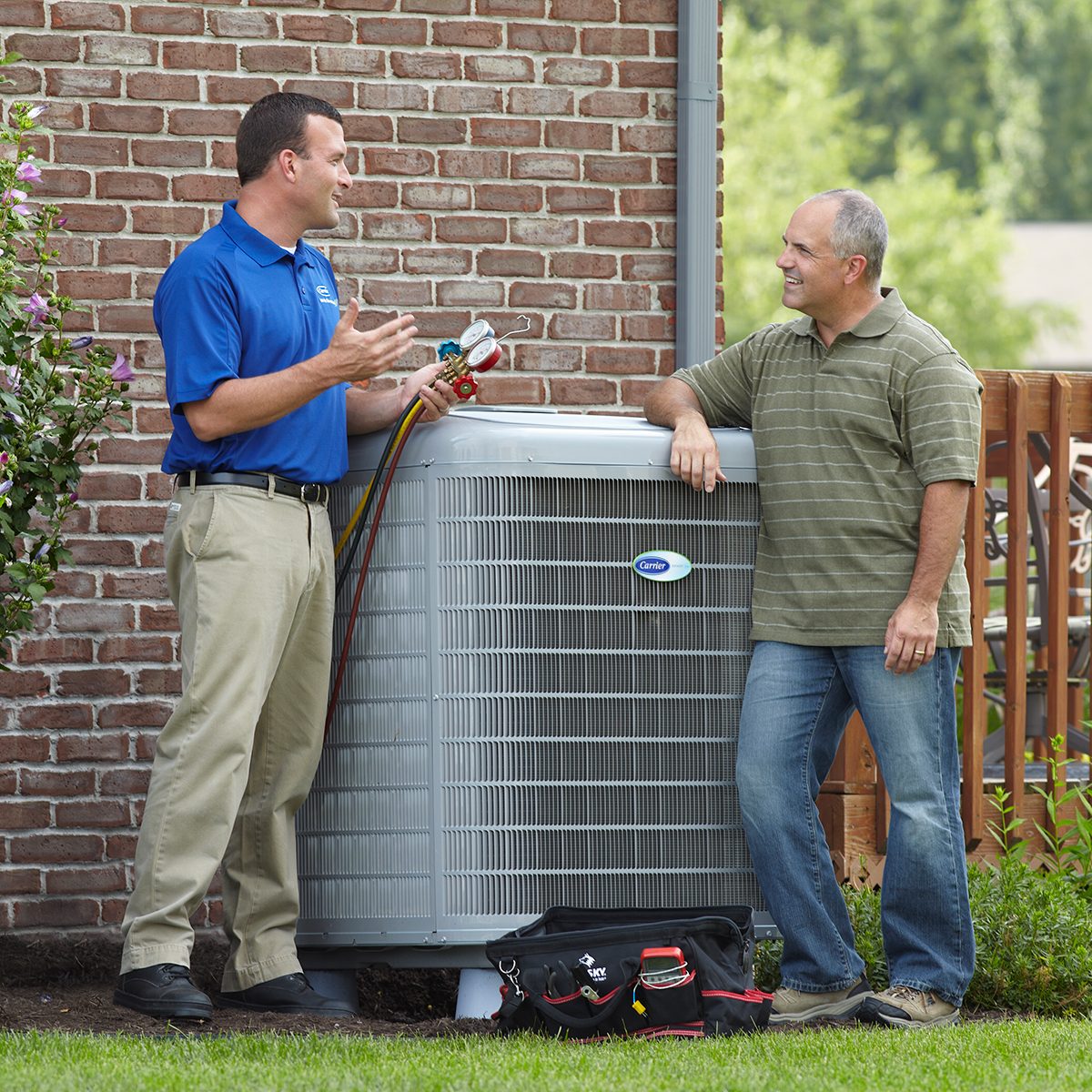What to Know Before Buying a Central AC Unit Replacement
Updated: May 20, 2019
The lifespan of most HVAC systems is an average of 10 to 14 years, so you can count on going through this experience sooner or later. Before you begin shopping here are some things you’ll want to know about central AC unit replacement.
Sponsored by Sears Home Services
A new central AC unit is a big-ticket item that plays an essential role in how comfortable your house is.
The lifespan of most HVAC systems is an average of 10 to 14 years, so you can count on going through this experience sooner or later. Here’s how long other things in your home should last. Before you buy a central air conditioner, here are some things you’ll want to know about central AC unit replacement.

The Right Size
One common mistake homeowners make is buying a unit that is either too big or too small to efficiently cool their home. Unfortunately, replacing your central air conditioner isn’t as simple as buying an identical-sized, new AC unit, especially if you’ve made any changes to your home, such as the replacement of drafty windows, installing new insulation or adding new rooms.
Consumersearch.com recommends that you have a licensed HVAC technician perform a load calculation, which is the industry’s method of determining what size AC unit your home needs before buying a new one. The load calculation also determines the amount and size of the air ducts your system has in place and makes sure they are in good working condition. The licensed HVAC technicians at Sears Home Services provide free on-site consultations to evaluate your home’s unique cooling needs, no matter where you buy the AC unit and they’ll let you know how much it is to replace an AC unit.
RELATED: Sears Home Services can repair, replace or perform maintenance on your heating and cooling systems. Learn more about HVAC options here.
Consider Buying Direct
Buying your new central AC unit directly from an HVAC retailer typically provides a substantial cost savings opportunity for homeowners because HVAC contractors who buy the AC units for you will include a markup in the price of the equipment. However, manufacturers tend to frown on consumer-direct buys because they do not want homeowners trying to install the AC unit as a do-it-yourself project; the danger involved in doing it yourself is real and serious. Here’s where you shouldn’t have an AC unit installed.
If you do buy direct make sure you buy your central AC unit through a licensed distributor and that it is installed by a licensed HVAC contractor. As long as you meet this criteria buying direct will not void your unit’s warranty.
Efficiency Equals Energy Savings
It’s important to make sure your new central AC unit provides you with the highest possible Seasonal Energy Efficiency Ratio, or SEER, which is a measurement of the amount of energy needed to deliver the proper amount of cooling. High efficiency models come with a SEER between 14 and 25.5, and all models sold in the U.S. are required to have a SEER of no less than 13. If you live in a hot, humid climate it is especially important to choose a unit with the highest SEER affordable since it will be running a lot of the time.
Also, remember before you buy a replacement AC unit that all ENERGY STAR ®
-rated air conditioners qualify for a federal income tax credit.
Importance of Compressors
The most important component, and the most expensive part, of a central AC unit is the compressor, which is what enables the air conditioner to cool your house. Basically, there are two types of compressors — single-stage and two-stage. Single-stage compressors only run on high speed, even if the room requires less air to cool it, resulting in higher electric bills. Two-stage compressors cycle from high to low, typically running on low, resulting in consistent temperatures and lower utility bills. For most homes it is best to buy a central AC unit replacement that has a two-stage compressor.
There is a lot to know and learn before you start shopping for a central AC unit replacement — much more than is covered here. For more information read the Sears Knowledge Center air conditioning buyers guide, or if you’re looking for a full replacement of your cooling system, our courteous, licensed HVAC technicians will perform a free evaluation so you get the perfect fit for your home.